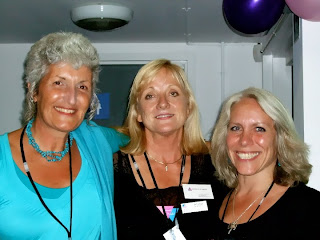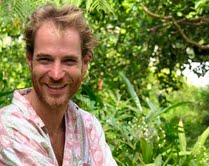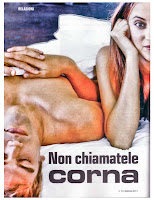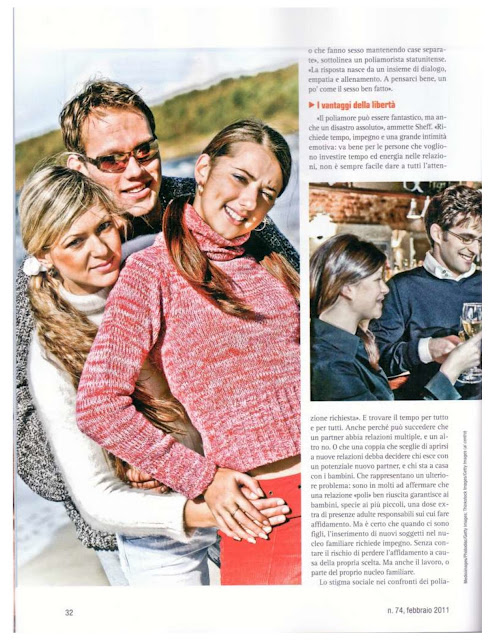Bi ReConNaissance: An Introduction to BiTopia
Serena Anderlini-D'Onofrio
To be be continued: 4 of 8 - Cluster 2: Contexts for Biphobia and Bi-Negativity. Includes comments on contributions by Christian Klesse and Miguel Obradors-Campos. Watch out for this exciting section in a few days!
Copyright and Prepublication Notice:
Serena Anderlini-D'Onofrio
Cluster 1. Bi Re(Con)Naissance: When Bisexuality Enters the Third Millennium
The first of five clusters in which this volume’s contributions have been organized includes introductory articles that also reflect and elaborate on the contents of plenary sessions. “BiReCon: An International Academic Conference on Bisexuality” is a multivoiced narrative based on observation and a micro-historicist perspective that nimbly documents and captures the energy and movement of the event. The team of authors, including Meg Barker, Christina Richards, Rebecca Jones, and Surya Monro, were also key agents for the convergence of three Bi events that made BiReCon momentous. They warmly welcomed BiReCon research into the BiCon, ICB, BiTopian space. Their contribution clearly outlines the background and social actors that made the convergence possible, and briefly highlights presentations and their significance. The appended copy of the Conference Program orients readers as to the variety of topics and contributions, with a complete list that includes presentations not available in article form.
Subsequent contributions in this section memorialize the three keynotes of the day. In “Why We Need to ‘Get Bi’,” long-time bi educator and activist Robyn Ochs explains why the binary that organizes current thinking about sexuality needs to be overcome, along with the oppositional logic that affects human thinking in all areas of life. Ochs’ pragmatic voice powerfully outlines strategies for global action.
In “Bisexuality, Gaia, Eros: Portals to the Arts of Loving” yours truly takes this line of reasoning one step further to introduce the global ecology of bisexuality. In a cosmos where matter and energy, mind and body, nature and humanity are aligned, bisexuality functions as a portal to a world beyond the hetero/homo divide, where the symbiotic energy of love is revered, the practice of love considered an art. In this BiTopian world, Eros, the energy of love is recognized as the force that makes Gaia, the third planet Earth, alive.
In a similar vein, the last contribution in this section comes from a perspective that honors erotophilia, or the love of love, rather than erotophobia, or the fear of love. Its applied research is auspicated by AIB, the American Institute of Bisexuality. Eric Anderson and his collaborators present significant in-progress findings on men and bisexuality, with a focus on secular cultures in today’s major metropolitan areas of the West. The team includes Matthew Ripley, Adrian Adams, and Robin Pitts. In “The Decreasing Significance of Stigma in the Lives of Bisexual Men” the authors document a cultural shift that empowers young men of our time to be more fluid about their sexuality and more relaxed about connecting physically and emotionally with one another, when compared to men who came of age on or before the AIDS era.
The attention paid to gay cultures in the context of this epidemic has made gayness more acceptable to people who love love and respect erotophilia, or the human drive to make that love expressed.
To be be continued: 4 of 8 - Cluster 2: Contexts for Biphobia and Bi-Negativity. Includes comments on contributions by Christian Klesse and Miguel Obradors-Campos. Watch out for this exciting section in a few days!
Copyright and Prepublication Notice:
© Serena Anderlini-D'Onofrio, transferred to Taylor & Francis for upcoming publication in BiReCon, a selected proceedings issue of the Journal of Bisexuality. Prepublished here courtesy of T & F. Stay tuned for volume and buy it online!
Read the Journal of Bisexuality online, the only peer-reviewed journal dedicated to the study of all aspects on bisexuality. Check out our latest: a provocative special-topics issue on Bisexuality and Queer Theory!





















